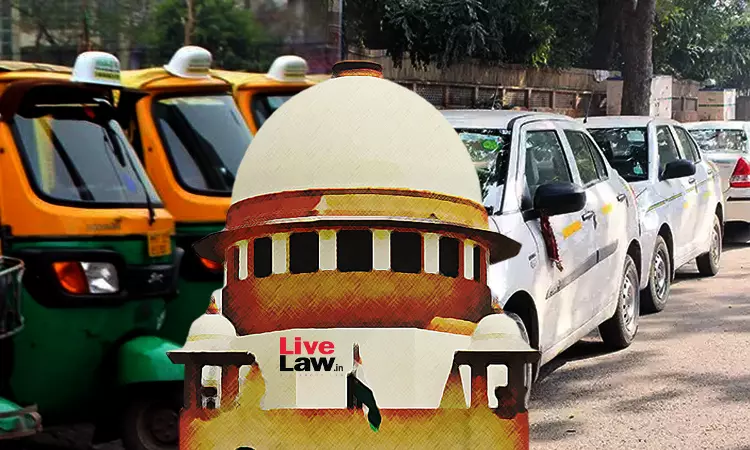Taxi, Auto-Rickshaw Drivers Approach Supreme Court; Seek To Be Heard In LMV Driving License Issue Before Constitution Bench
Awstika Das
23 Aug 2023 7:04 PM IST

Next Story
23 Aug 2023 7:04 PM IST
A union of taxi and auto-rickshaw drivers has approached the Supreme Court expressing concerns about overturning a verdict which allows drivers having Light Motor Vehicle(LMV) license to drive transport vehicles which have unladen weight less than 7500 kilograms.The Tamil Nadu Urimai Kural Driver Trader Union, representing over 2000 taxi and auto-rickshaw drivers in the southern state, ...
